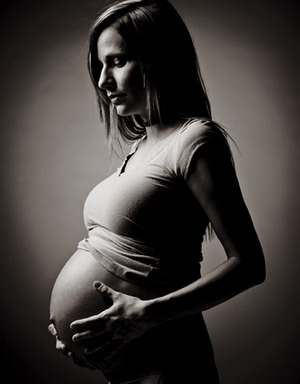|
|
女人生育的“最后期限”是多少岁(图) 女人生育的“最后期限”是多少岁
New tests may provide fertility 'deadline.' A test developed by Iranian researchers could let women, even in their 20s, predict within a few months when they will stop being fertile. The test measures levels of a hormone produced in the ovaries that controls development of egg cells. Of 63 women who reached menopause during the study, the average difference between the predicted age and the actual age the women reached menopause was just a third of a year, according to one report. 'The results from our study could enable us to make a more realistic assessment of women's reproductive status many years before they reach menopause,' the lead researcher said in a news release. Meanwhile, another new test, described here, claims to predict when a women's ovaries will start to fail. Would you want to know any fertility issues in advance, in order to help make family-planning decisions? Or does that creep you out? 一些新的测试方法或许能告诉你自己的生育“最后期限”。一项由伊朗研究人员研发的测试方法让女性能在几个月时间内预测出自己将会在何时失去生育能力,即便是二十多岁的女性也可以预测,具体的方法是检测控制卵细胞生长的卵巢所产生的一种激素的水平。有一份报告显示,在接受研究期间有63名女性进入更年期,检测出的她们进入更年期的年龄与实际年龄之间的平均差异只有4个月。该研究的负责人在一份新闻稿中说,我们的研究结果使我们能在女性进入更年期的许多年前就对她们的生育能力进行更加接近实际的评估。另外一项新的测试方法则宣称能预测女性的卵巢从何时开始衰竭。你是想通过这些方法提前了解自己的生育能力以做出“造人”决定呢?还是会对这些方法敬而远之呢? Delaying kids may pay off financially. A new study found that delaying kids may prevent a financial 'motherhood penalty,' the pay gap between childless women and working moms. Researchers reviewed 35 years of data from some 2,200 women and found that women who had kids in their early- to mid-20s or even younger didn't fare as well economically as those who delayed, USA Today reported. The research found women who got more education and job training before having children end up as successful economically as women who didn't have kids。 推迟要宝宝也许能换来经济上的回报。《今日美国》(USA Today)报道,一项新的研究发现,推迟要孩子或许能避免“为人母的经济惩罚”,也就是做了母亲的上班族与无子女女性上班族与之间的收入差距。研究者在研究了约2,200名女性35年的数据后发现,在二十五六岁或是二十岁出头甚至更年轻的时候有了孩子的女性,她们的经济收入不如那些晚育女性。该研究还发现,在生育前接受了更多教育和职业培训的女性,她们最终的经济状况不亚于那些没有生育过的女性。 More women in their 40s childless. Nearly one in five American women in her early 40s is childless, according to a Pew study, a large increase from years past. The trend was much less common in the 1970s, when one in 10 women did not have children by 40 to 44, the age bracket researchers use to designate the end of childbearing years, the Washington Post reported. The report cites social and cultural shifts behind the change, including less pressure to have children, better contraceptive measures and expanded job opportunities for women, said the Post。 越来越多四十多岁的女性没有孩子。《华盛顿邮报》(Washington Post)报道,据皮尤中心(Pew)的一项研究,40至44岁的美国女性中有近五分之一没有子女,这一比例较前几年有大幅上升。这种情况在上世纪七十年代要少见得多,当时40至44岁的女性中只有十分之一没有孩子。研究者认为40至44岁这一年龄段是多数女性生育能力的终结时期。报道提到了这一变化背后所蕴含的社会和文化转变,包括必须生小孩的压力减小、避孕措施更加完备以及女性就业机会的增加。 网友评论
企业服务 |
||||||||||||||||

